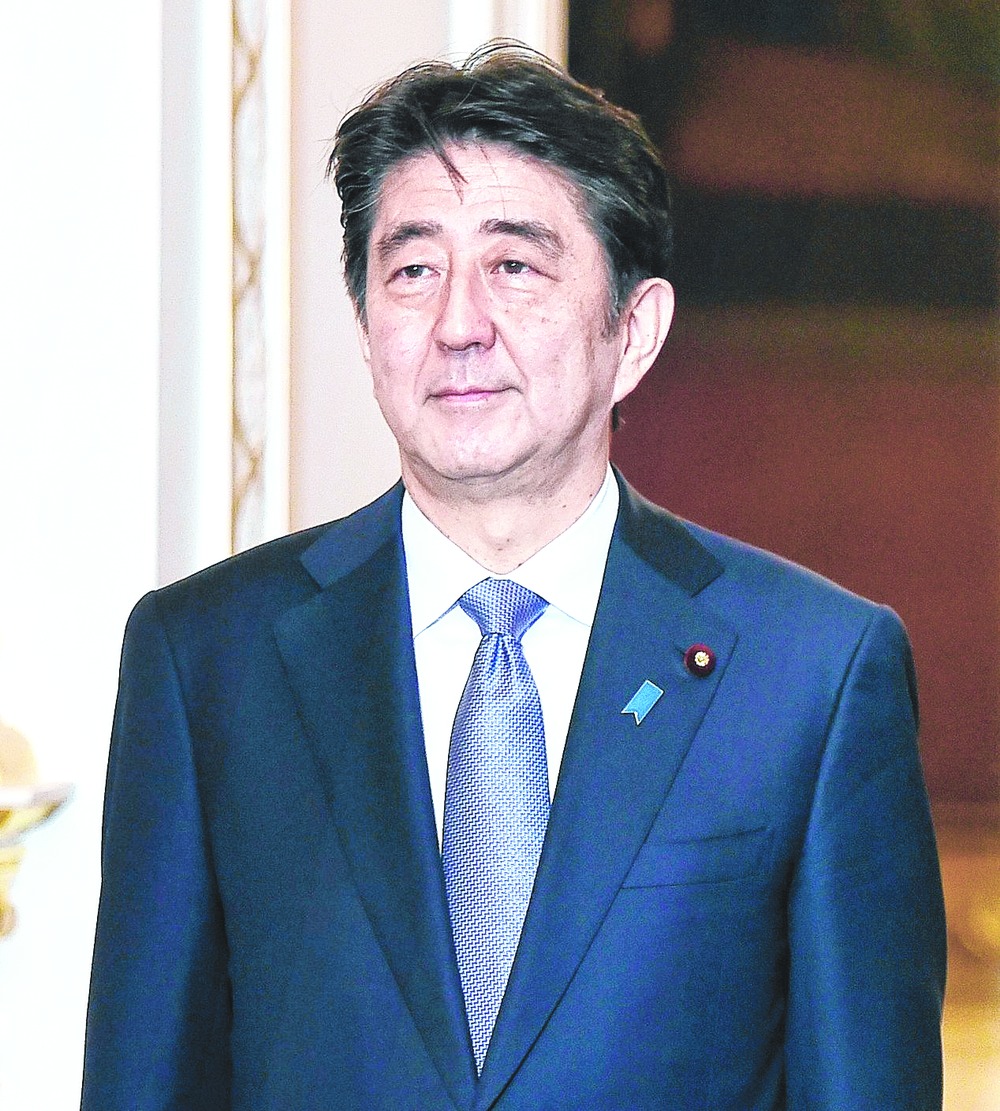
Dec. 10: If any Japanese businessman raises the difficulties posed by India's red tape and regulations during Prime Minister Shinzo Abe's visit starting tomorrow, this time there would likely be a vociferous defender of India on the Japanese side for a change.
He is Kenji Hiramatsu, Tokyo's new envoy in New Delhi. Japan's businessmen are famous for complaining about difficulties of doing business in India. Of course, many of their complaints are valid: that is corroborated by global reports that stress the low ranking India routinely receives in the ease of doing business.
Hiramatsu will, however, distance himself from any such complaints from his compatriots during Abe's visit. This is because the new ambassador's experience has been refreshingly different.
Hiramatsu's appointment as ambassador to India took effect only on November 19. He was heading his ministry's foreign policy bureau in Tokyo when Hiramatsu was picked six days earlier to succeed Takeshi Yagi who has headed the mission in New Delhi since September 2012.
The new envoy has not been in Chanakyapuri, the seat of Japan's mission in the national capital, for more than a few days. But to the surprise of his colleagues at the mission and the envy of other ambassadors and high commissioners in New Delhi's diplomatic enclave, Hiramatsu got a call from Rashtrapati Bhavan to present his credentials on Wednesday.
The Japanese are relieved that they have an ambassador in place by the time their Prime Minister lands in New Delhi. Strictly going by protocol, Hiramatsu could not have participated in Abe's visit if he was still ambassador-designate.
The Indians are holding up this diplomatic feather in their caps as an example of how things can, indeed, be done in India. More so since what Rashtrapati Bhavan did to ease Abe's visit in protocol terms is more than what Tokyo has been able to do for the new Indian ambassador to Japan.
Sujan Chinoy, like Hiramatsu, is new to his post. He arrived in Tokyo only on December 3. But the Japanese have been unable to arrange a full credentials ceremony for him unlike the South Block, the seat of the ministry of external affairs.
Not even the well-known Japanese sensibilities to their old friend Narendra Modi helped in this regard: Chinoy is from Gujarat. He went to school in Rajkot, graduated from Baroda and later earned his MBA from Ahmedabad. Even the old school tie from Chinoy's time as a student in the 1970s at the Otemon Gakuin University in Osaka did not help. The Japanese did one thing, however, so that Chinoy can fully participate in Abe's visit as India's ambassador and not remain in the shadows as a "designate."
Within hours of his arrival in Tokyo, the chief of protocol, Kaoru Shimazaki, met the incoming envoy. He was then taken to see vice foreign minister Akitaka Saiki who took a copy of Chinoy's letter of credence. And he formally became the ambassador. The credentials ceremony with full regalia will be held in due course. Once Abe returns home, the Indians and the Japanese may debate which of their styles of functioning was easier done: hurry up and go through the full credentialling ceremony or just ease the formalities and get the work done.
Varanasi hope
While the diplomats on the Indian side have been hard-nosed and at their diplomatic best in conceptualising Abe's visit, a parallel "ministry of external affairs" in the Sangh parivar which habitually gets involved in Modi's foreign policy initiatives is nursing other ideas about this weekend's Indo-Japanese summit.
Those who run this parallel establishment are hoping that Abe's presence in Varanasi on Saturday will help restore Modi's lustre in his constituency. In the panchayat elections in Uttar Pradesh last month, the BJP suffered setbacks in Varanasi.
The setback was especially severe in the Arajiline block, of which Jayapur village is a part. Modi had adopted this village as part of his ambitious plans for developing Varanasi. It has also been galling for the BJP that in a recent list of 476 cities, prepared by the ministry of urban development for their cleanliness, Varanasi was ranked an abysmal 418. Now, the hope is that Abe can come to Modi's rescue.
Sources working on his visit said the Japan International Cooperation Agency (Jica) will announce in Abe's presence a major partnership with Varanasi for water and waste management in the city.
Water management is at the crux of relieving Varanasi's woes with pollution in the Ganga and difficulties in dealing with the city's water and waste problems. Abe will participate in a Ganga Aarti at the Dasaswamedh Ghat in Varanasi at sunset on Saturday, which will be flashed on TV screens worldwide because it is an unusual setting for a Japanese Prime Minister.
Railway minister Suresh Prabhu's recent, low-key visit to Japan has helped finalise an umbrella agreement for the modernisation of Indian Railways: that may be a big takeaway from Abe's visit in substantive terms.
Of course, for weeks, the public focus has been on the proposal for bullet trains in India which Modi has set his heart on. Defence cooperation will get a shot in the arm as Abe is keen to restore Japan's place in security matters as a "normal" country for the first time after World War II.
India has merely 500 students studying in Japan compared to more than a lakh from China. Abe wants some practical steps to raise this number because both Nepal and Bangladesh send more of their boys and girls to study in Japan than India.











